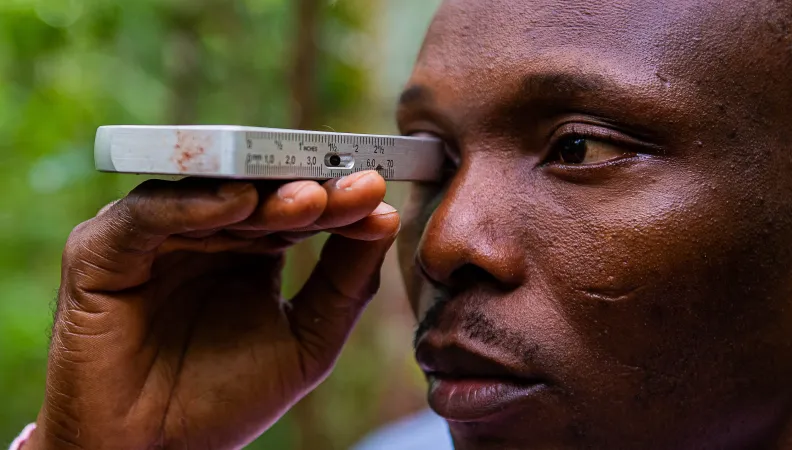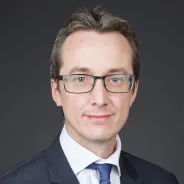Share the page
Deployment of international technical experts

As France’s international development cooperation agency, our work relies first and foremost on human expertise and know-how. In addition to project execution, we deploy international technical experts and French technical experts, including experts from government ministries and the private sector. We do this through project-based assignments and our management of the network of international technical experts (ITEs).
Project-based technical experts
As part of our projects, we deploy French, European and international technical experts from the public and private sector, including experts from the partner countries we work with. This deployment can take several forms:
- Short-term missions with clearly defined deliverables and deadlines from the outset. This can include training, technical studies, evaluations, or knowledge sharing.
- Mid-project assignments to strengthen a project team or partner at key moments, for example the mid-project review or the beginning of a task or project.
- Long-term assignments to facilitate execution throughout the project life cycle.
Management of ITEs
International technical experts (ITEs) are professionals seconded by France to carry out cultural, scientific, or technical cooperation missions with partner countries and organisations. In 2016, the Ministry for Europe and Foreign Affairs entrusted Expertise France with the management of the ITE network. Today, nearly 400 ITEs are active worldwide. Their work benefits all stakeholders, from the diplomatic and cooperation network to partner administrations and Team France as a whole. It also benefits the French businesses, which may supply these experts and have a stake in successful project completion.
ITE assignments are uniquely shaped by their field of expertise, the host institution, regional and geopolitical circumstances, and the diversity of technical expertises. This deployment helps France reinforce its presence in many priority regions, particularly the Indo-Pacific, Europe, Africa and Asia.
ITE placements may include:
- Assignments with foreign states (ministries, public bodies, local authorities)
- Roles within international or regional organisations
- Positions in universities, research centres, think tanks, or local civil society organisations.
ITEs as ambassadors of French foreign policy
ITE assignments reflect France’s foreign policy strategy. Over the past years, traditional cooperation areas are being supplanted by newer priorities. More ITEs now work on sustainable development, digital transformation, global health, culture, and heritage – signalling France’s new strategic priorities in these areas.
Deploying French expertise strengthens cooperation with partner countries and international organisations across a wide range of civil sectors aligned with the ministry’s priorities. These are education, higher education, research, French language, heritage, museum cooperation, culture and the creative industries, climate and environment, food security, health, governance, European integration, economic diplomacy, sport, and civil protection, among others.
International Technical Experts in economic diplomacy
ITEs are not just deployed by the Ministry for Europe and Foreign Affairs. The Directorate-General of the Treasury deploys ITEs on economic and financial missions to promote French expertise worldwide. Since 2021, about 40 such assignments have been managed by Expertise France, supporting strategic priorities like international sustainable development projects and fiscal reforms aimed at improving economic governance in partner countries.
ITEs are highly valued by French companies as they showcase French expertise and reinforce partnerships.
ITEs in international organisations
About one-third of ITEs are placed in international organisations, across diverse sectors:
- Political and economic intergovernmental organisations, mainly in Europe, Africa, Asia and the Indian Ocean (EU commissions, African Union, Indian Ocean Union, ECOWAS, ASEAN, ESCAP, OECS, EU Council, CONFEJES, etc.)
- Multilateral development banks (World Bank, BRED, African Development Bank, Asian Development Bank).
- Specialised United Nations agencies and institutions, e.g. the United Nations Office on Drugs and Crime (UNODC), World Food Programme (WFP), Food and Agriculture Organisation of the United Nations (FAO), UNAIDS, Office of the United Nations High Commissioner for Refugees (UNHCR), UNESCO, International Labour Organisation (ILO), World Health Organisation (WHO), International Maritime Organisation (IMO), United Nations Conference on Trade and Development (UNCTAD), International Civil Aviation Organisation (ICAO), United Nations Development Programme (UNDP).
- Intergovernmental institutions specialising in various sectors, e.g. International Solar Alliance (ISA), International Institute for Democracy and Electoral Assistance (International IDEA), International Organisation for Migration (IOM), World Organisation for Animal Health (WOAH), Universal Postal Union (UPU), Global Green Growth Institute (GGGI), Medicines Patent Pool (MPP), and the Vaccine Alliance (Gavi).
ITE Portal
Designed from an interministerial perspective and developed by Expertise France, the International Technical Experts Portal embodies a renewed ambition to update France’s development cooperation services and to reinforce field operations in priority sectors and regions.
The portal serves as a platform that centralises resources and information. It makes it easier for applicants to see which projects require experts. It also features news and highlights focus areas and regions that are a priority for French international cooperation.
“This portal is a comprehensive tool that supports candidates for expatriation and technical experts throughout the entire mobilisation process–from learning about France’s development policy strategies and expertise, to engagement and interaction throughout their missions.”
- Director of the Bilateral Cooperation and Technical Experts Department at Expertise France.

FAQ - Learn more about technical experts
More information about technical experts
An International Technical Expert (ITE) is a professional seconded by France to share expertise with a partner country or organisation within the framework of international cooperation.
ITEs provide technical advice and contribute to project design and implementation across sectors aligned with France’s development priorities. Examples include education, research, heritage, climate and the environment, food security, and health.
ITEs are deployed in over 100 countries, including central administrations, foreign governments, international organisations and UN bodies, regional and/or financial bodies, universities, and research institutes. Their work spans everything from bilateral cooperation to economic and scientific diplomacy.
Public servants, magistrates, EU/EEA/Swiss civil servants, and non-civil-servant experts with relevant qualifications are eligible to become ITEs.
If an expert is required by the Ministry for Europe and Foreign Affairs or by the Directorate-General of the Treasury, Expertise France manages the whole recruitment process. This process includes a call for applications, shortlisting of candidates, approval by the partner country or organisation, and the drawing up of an assignment contract.
The initial assignment of an International Technical Expert is generally for a period of two years, renewable once (with the same host State or organization), for a maximum total duration of four years.
ITEs are contractually employed by Expertise France.
Expertise France is therefore responsible for the remuneration of International Technical Experts, as well as for covering their expatriation costs (travel, relocation, etc.).
The host partner plays a central role:
- It formulates the request for expertise and submits it to the French Embassy (or the relevant Permanent Representation);
- It contributes to drafting the terms of reference at the beginning of the assignment;
- It provides the material conditions necessary for the assignment (office space, equipment);
- It may sign an agreement with Expertise France and facilitate administrative procedures (visa, taxation).
